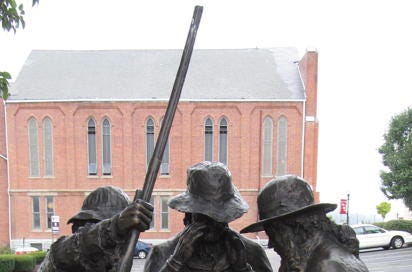Whiskey Insurrection: Frontier Americans Revolt Against Hamilton and Washington
Then as Now: Contra Unjust Taxation
U.S. Government Oppression of Rural America in the 1790s
By Michael Hoffman • Copyright©2024
Part One
In the 1790s, shortly after the birth of this nation, thousands of American farmers on the Pennsylvania frontier, many of them Revolutionary War veterans, rose to defend again the principles of the Revolution—sovereignty, taxes and equal rights before the law, including the rights of the wealth-creating farmers and workers (popularly termed “mechanics”), as opposed to the self-endowed privileges of lawyers, bankers and bureaucrats who produced no wealth other than the parasitic kind, though some furnished necessary services by which labor, in theory anyway, would be protected. The new republic’s wealth was primarily in natural resources—the soil and timber.
In the aftermath of the American Revolution, the postwar reality in the western United States in the last decade of the 18th century was perilous. These perils included massive debt and in the towns, unemployment. In the wake of its defeat on the battlefield, the infuriated British Crown continued to seek vengeance and this took the form of attempting to foment Native American uprisings in what was known then as the “Ohio country,” of which western Pennsylvania was a part, largely inhabited by the “Scots-Irish,” an ethnological description which has confused observers for many decades.
Keep reading with a 7-day free trial
Subscribe to Michael Hoffman's Revelation of the Method to keep reading this post and get 7 days of free access to the full post archives.



